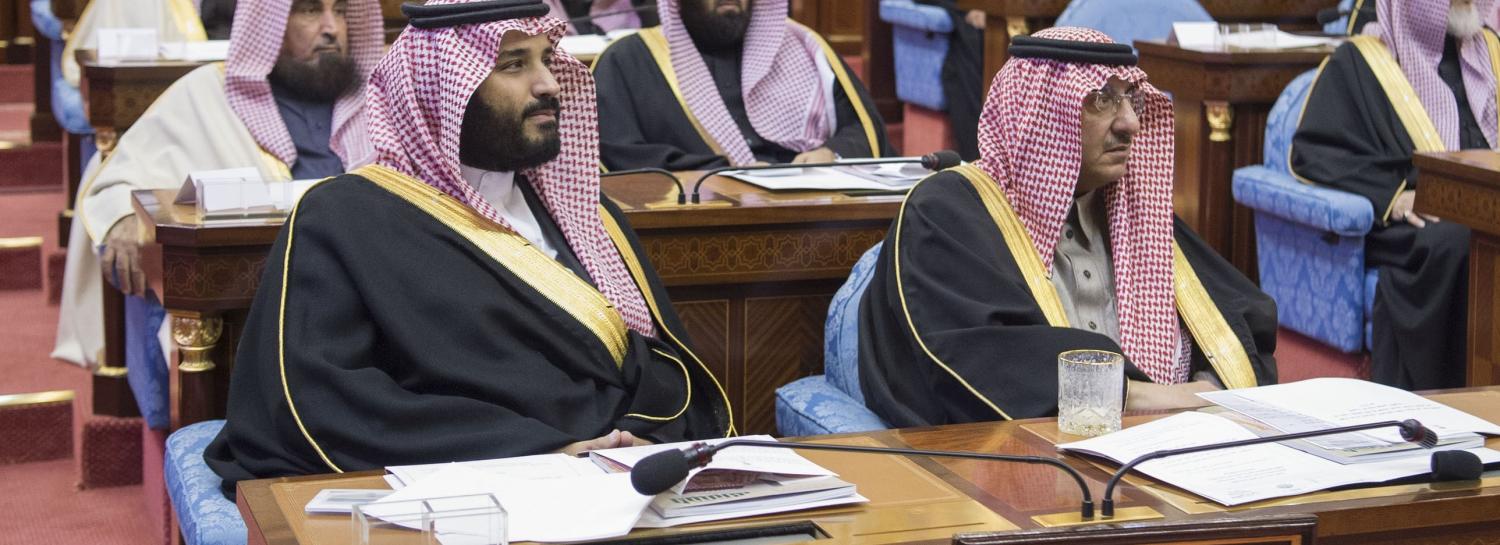Today's announcement that Saudi Arabia's King Salman has reshuffled the line of succession in favour of his son Mohammed bin Salman is surprising, but not unexpected.
MBS, as he is often referred to, has been moved from Deputy Crown Prince to Crown Prince, while Mohammed bin Nayef (MBN), the King's nephew, has been moved aside as Crown Prince, and has also lost his powerful position as Interior Minister.
The move itself was not unexpected given that Salman has been concentrating power in his son's hands from the moment he became King in 2015. MBS rapidly became the key figure in the country's internal and foreign policies, but MBS also knew that his chances of becoming King might have been forestalled if his father died before he could consolidate his power, especially vis-à-vis his key rival in the family, MBN.
What is more surprising is the timing. There were few hints that the King was about to make such a dramatic move. Less than a week ago the King stripped MBN of his powers to oversee criminal investigations. This suggested that the gradual process of consolidating MBS's position was continuing. Why strip MBN of some of his power if you are going to remove him from power altogether just a few days later?
We can only guess at what might have brought matters to a head: perhaps MBN cavilled at the recent moves; perhaps the aged King's health has deteriorated in some way; it may also be that MBN's health was a factor here, given that he too has reportedly been in poor health.
Such is the opacity of moves within the Saudi Royal Court that it is always going to be a guessing game – even for members of the royal family.
The move itself is not an unprecedented one. The Saudi royal family has a long history of shuffling and reshuffling the succession. In the past it has made decisions to jump princes in the line of succession if they were considered unsuitable to become King.
King Salman himself removed his brother, Prince Muqrin, from the post of Crown Prince shortly after coming to power, giving the job to MBN. That move was significant because it was the first time that a member of the next generation had become Crown Prince. Prior to that, all the Kings of Saudi Arabia had been sons of the founder of the modern Saudi State, King Abdulaziz Ibn Saud.
Nevertheless, the turnover in senior positions in the Kingdom has been very rapid since Salman became King. This may have generated discontent within the family. The question is, however, whether that discontent would be sufficient to cause members of the family to challenge either King Salman or MBS, or to link up with domestic forces opposed to them.
History shows us that Saudi royals might grumble and moan but they tend to stick together in the knowledge that if the family goes down then everyone in the family goes down too. And it is difficult to see where the challenge to Salman or MBS might come from, given how assiduously they have centralised power and how few senior princes there are left in the family. If I had to put my money on anything, I would bet that this move will pass unchallenged.
Nevertheless, what makes me a little more cautious about continuing to wager on Saudi stability are the aggressive reforms and policies that MBS has been driving in a country long known for its conservatism and caution.
MBS has led the Saudis into an inconclusive war in Yemen, albeit one that is not causing too many Saudi casualties (although it has been a humanitarian disaster for the Yemeni population). His economic reform plans have been ambitious and have met with resistance. He was also probably behind recent moves to isolate Qatar that now seem to be overreaching, with the United States starting to question them.
As Interior Minister, MBN was also heavily credited with successfully containing the terrorist threat within the Kingdom. Should terror attacks resume, should the war in Yemen become costlier in Saudi treasure or blood, or should MBS's economic reform plans fail, it may give some in the family or in the country motive or opportunity to challenge the young Prince's position.
This would be a bold move and there are real questions about how anyone might actually go about challenging MBS. Here the role (and health) of MBN could be a factor and it will be interesting to see how the former Crown Prince responds to his demotion in coming days, weeks and months.

